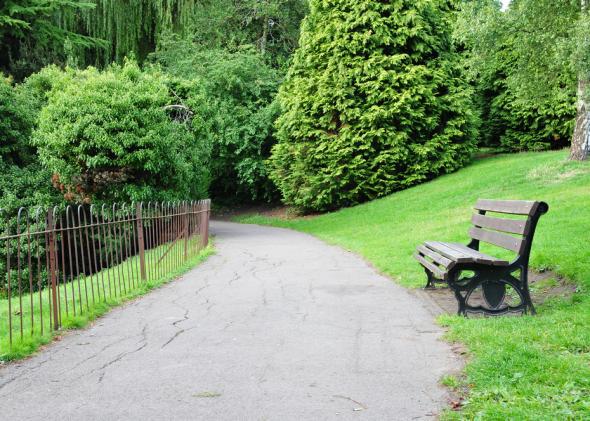Debra Harrell, 46, let her 9-year-old daughter play outside alone at the park. The South Carolina child had a cellphone she could use to call her mother in case of emergency. On the girl’s third day alone at the park, someone asked her where her mother was. The girl said her mom was at work. (Harrell works at McDonald’s and didn’t want her daughter to have to sit inside the restaurant for hours on a beautiful summer day.) The result? Harrell was arrested for “unlawful conduct towards a child” and put in jail; her daughter is now in the custody of the department of social services.
Most commentators—save for a few busybodies interviewed by the local news who nattered on about the possibility of the child being abducted by a strange man, something that’s extremely rare—think that authorities went way too far in arresting Harrell. It angers me, as a citizen, to see the police overreach this way. How is it benefiting this child to be put in the custody of social services? And since I’m a parent, Harrell’s arrest scares me: How can I appropriately parent my child when doing something that seems relatively safe, if out of fashion, can get you arrested?
I asked Dorothy Roberts, a professor of law, sociology, and civil rights at the University of Pennsylvania and the author of Shattered Bonds: The Color of Child Welfare, if state laws give any specifics about how parents should behave. As in, if you leave a child of X years alone for Y amount of time, it’s a crime. Roberts responded via email:
The short answer is that every state has its own child maltreatment laws and definitions of neglect—and they are all very vague with no specifics. Most include within neglect failure to provide adequate supervision. South Carolina’s child welfare law is actually more specific than most, but still doesn’t specify the age—“supervision appropriate to the child’s age and development.” But how does the judge/jury determine what’s appropriate? I don’t know of any law that specifies the age or the precise nature of failure to supervise.
Roberts further explained that states determine whether to treat neglect as a crime or as a child welfare matter. She says it is “recent and rare” for the parent to be charged with a crime and adds that the vagueness of the statutes leave “a lot of room for discretion by social workers, police, judges, and prosecutors, to determine which/whose failures to supervise to pursue. This allows race, class, and gender biases to influence decisions in both the child welfare and criminal justice systems.”
Certainly those biases could be at play here: Harrell is black, and class is definitely behind how her situation came to be in the first place. As Jonathan Chait points out in New York magazine, when welfare reform was passed in the ‘90s, single mothers were pushed into low-paying, full-time work that did not provide enough income to afford child care.
It’s clear that Harrell was put in a difficult situation and made what she thought was the best choice for her child. But a lot of the posts defending Harrell imply that if she weren’t working, letting a 9-year-old go to a park by herself would have been a questionable call. I’m with Lenore Skenazy, founder of the “free-range kids” movement, who believes modern helicopter parenting has gone too far. She writes, “It may feel like kids are in constant danger, but they are as safe (if not safer) than we were when our parents let us enjoy the summer outside, on our own, without fear of being arrested.” It should be normalized for children who are nearing the end of elementary school to begin doing some things on their own. If every parent who let their fourth-graders go to the park unsupervised were arrested, all the moms from 1972 would have been behind bars.
